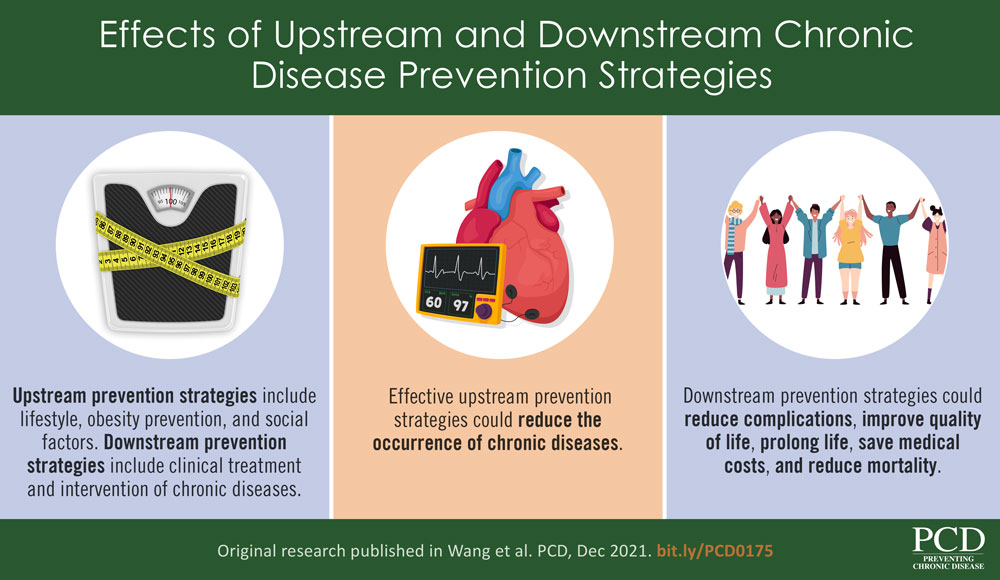Healthy Lifestyle Changes to Prevent Chronic Disease: A Comprehensive Guide

Embark on a journey towards better health with the key focus on Healthy lifestyle changes to prevent chronic disease. This paragraph sets the stage for an informative discussion filled with practical tips and insights.
Delve into the benefits of healthy habits, the importance of physical activity, nutritional strategies, and stress management techniques to safeguard against chronic illnesses.
Benefits of healthy lifestyle changes
:max_bytes(150000):strip_icc()/ways-to-prevent-congestive-heart-failure-3859866-Final-618f35bb132a421cbaf6f49a4077c9de.jpg)
Adopting a healthy lifestyle can significantly reduce the risk of developing chronic diseases and improve overall well-being. By making simple changes to your daily habits, you can experience numerous benefits that contribute to a healthier and happier life.
Regular Exercise
Regular physical activity not only helps maintain a healthy weight but also strengthens the immune system, reduces the risk of heart disease, and improves mental health. Engaging in activities such as brisk walking, jogging, or cycling can boost energy levels and enhance overall quality of life.
Balanced Diet
Eating a balanced diet rich in fruits, vegetables, whole grains, and lean proteins provides essential nutrients that support optimal body function. A diet low in saturated fats and processed sugars can help prevent obesity, diabetes, and other chronic conditions, promoting long-term health benefits.
Stress Management
Chronic stress can weaken the immune system and contribute to the development of various health problems. Practicing relaxation techniques such as deep breathing, meditation, or yoga can help lower stress levels, improve mood, and reduce the risk of stress-related illnesses.
Quality Sleep
Getting an adequate amount of quality sleep is essential for overall health and well-being. Proper sleep hygiene, including maintaining a consistent sleep schedule and creating a restful environment, can improve cognitive function, mood regulation, and immune system function, reducing the risk of chronic diseases.
Importance of regular physical activity
Regular physical activity plays a crucial role in maintaining good health and preventing chronic diseases. Exercise helps improve cardiovascular health, strengthen muscles and bones, manage weight, and boost overall mental well-being.
Types of Physical Activities
- Aerobic Exercise: Activities like brisk walking, running, cycling, or swimming help improve cardiovascular fitness and endurance.
- Strength Training: Weightlifting or bodyweight exercises help build muscle strength and maintain bone density.
- Flexibility and Balance Exercises: Yoga, Pilates, or tai chi can improve flexibility, balance, and reduce the risk of falls, especially in older adults.
Recommended Duration and Intensity
- The American Heart Association recommends at least 150 minutes of moderate-intensity aerobic exercise or 75 minutes of vigorous-intensity exercise per week.
- It is also beneficial to include muscle-strengthening activities at least twice a week.
- Individuals should aim for a combination of different types of exercises to target various aspects of physical fitness.
Nutritional strategies for disease prevention

Proper nutrition plays a crucial role in reducing the risk of chronic illnesses. By following a well-balanced diet, individuals can significantly improve their overall health and well-being
Importance of a well-balanced diet
- Include a variety of fruits and vegetables in your daily meals to ensure a good intake of essential vitamins, minerals, and antioxidants.
- Opt for whole grains over refined grains to increase fiber intake and promote better digestion.
- Incorporate lean proteins such as poultry, fish, tofu, and legumes to support muscle growth and repair.
Meal planning and portion control
- Plan your meals ahead of time to ensure a balanced and nutritious diet throughout the week.
- Practice portion control by using smaller plates, measuring serving sizes, and being mindful of your hunger cues.
- Avoid distractions while eating to focus on your food and prevent overeating.
Strategies for stress management
Chronic stress can have a detrimental impact on our overall health, leading to various diseases such as heart conditions, obesity, and mental health issues. It is crucial to incorporate effective stress management techniques into our daily routine to prevent these negative outcomes.
Techniques for reducing stress levels
- Practice meditation: Taking time to meditate can help calm the mind and reduce stress levels.
- Engage in yoga: Yoga combines physical postures, breathing exercises, and meditation to promote relaxation and reduce stress.
- Deep breathing exercises: Deep breathing can help activate the body's relaxation response, reducing stress and promoting a sense of calm.
- Mindfulness practices: Being present in the moment and practicing mindfulness can help reduce anxiety and stress levels.
Utilizing hobbies, social support, and time management
- Engage in hobbies: Pursuing activities you enjoy can act as a stress reliever and provide a mental break from daily pressures.
- Seek social support: Connecting with friends and loved ones can offer emotional support and help alleviate stress.
- Effective time management: Prioritizing tasks, setting realistic goals, and creating a balanced schedule can reduce feelings of overwhelm and stress.
Ending Remarks

In conclusion, prioritizing healthy lifestyle changes is not just a choice but a necessity in preventing chronic diseases. By incorporating these strategies into daily life, one can pave the way for a healthier future.
User Queries
How important is exercise in preventing chronic diseases?
Regular physical activity plays a crucial role in maintaining good health and reducing the risk of chronic illnesses.
What are some effective stress management techniques?
Techniques such as meditation, yoga, deep breathing exercises, and mindfulness practices can help reduce stress levels and prevent diseases.
Why is a well-balanced diet important for disease prevention?
A balanced diet rich in fruits, vegetables, whole grains, and lean proteins helps reduce the risk of chronic illnesses and promotes overall health.

